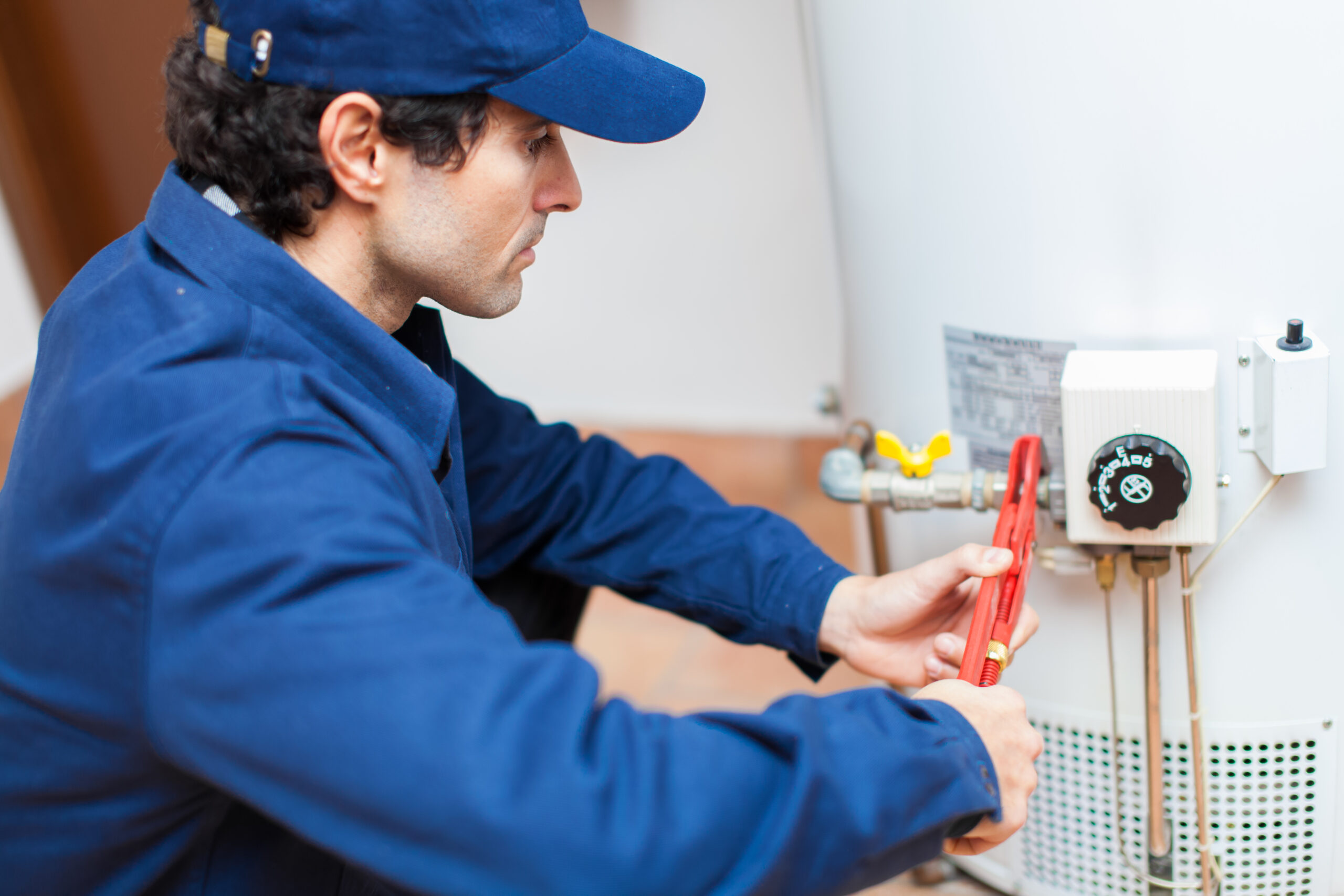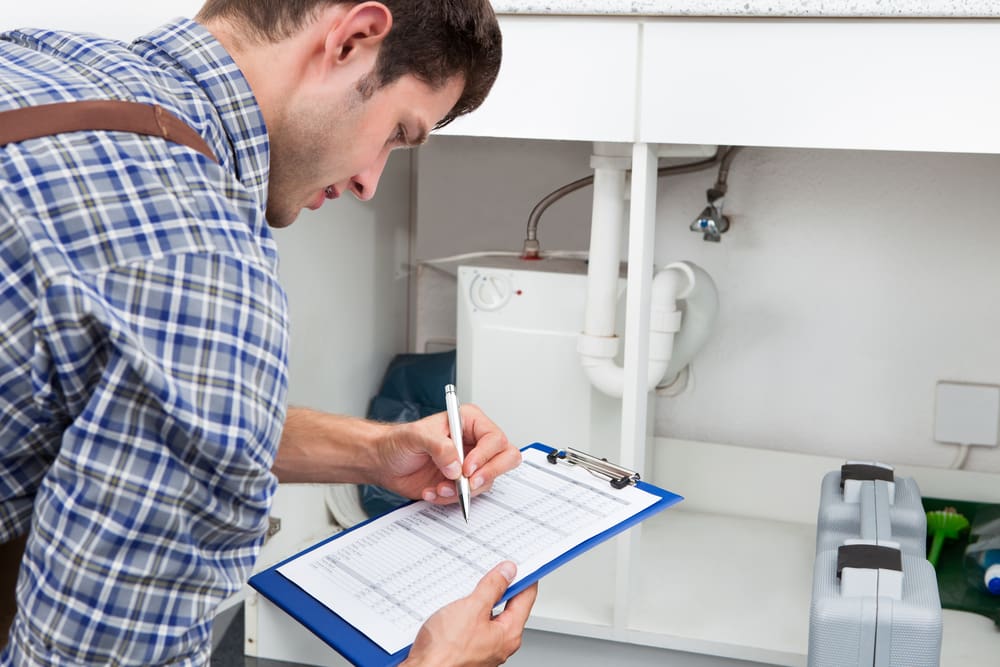
Having sufficient water pressure in your home is essential. Low pressure can make it difficult to shower and will also reduce the effectiveness of your dishwasher and washing machine. That said, high water pressure can be just as big of an issue. In this article, we’ll show you how a water pressure regulator works to keep your water pressure consistent and also what steps you can take to overcome issues with high or low water pressure.
The Role of the Water-Pressure Regulating Valve in Your Home’s Plumbing
The water pressure in most municipal water systems is quite high. The pressure in municipal water mains has to be high to ensure the water constantly flows and circulates properly. If not, the water pressure in every home supplied by the main would greatly decrease during periods of high water usage.
The problem is that the pressure in the municipal water main that supplies your home is typically much higher than what your pipes and plumbing system can handle. If the water pressure in your home is above 55 to 60 psi, it could cause major issues with your plumbing system and appliances. High water pressure will make your pipes more prone to leaking and also typically cause appliances like washing machines and dishwashers to wear out more quickly.
These issues are why most homes have a water-pressure regulator or pressure-reducing valve that decreases the pressure of the water as it flows into the house. This regulator valve is installed on the main water line where it enters the house near the water meter. The valve is always set to a specific pressure, usually around 40 psi. Inside the valve is a spring-loaded diaphragm that automatically widens or narrows as needed to control how much water flows into the home and ensure that the pressure always remains consistent.
If the water pressure coming into the home increases, the diaphragm will constrict or narrow to slow the flow of water and keep the pressure in check. If the pressure in the municipal water system decreases, the diaphragm will widen to allow more water in. This is important as otherwise, the water pressure in your home would decrease and potentially make it impossible to shower, run the dishwasher, etc. However, if the municipal water pressure decreases too much, your home will still have low water pressure since the valve can only widen or open so far. Luckily, issues with low water pressure in a municipal water system are fairly rare and usually don’t last that long.

Why Maintaining Proper Water Pressure Is Important
Without a pressure-reducing valve, your plumbing system and appliances would usually end up with all sorts of issues. High water pressure puts added strain on appliances and is one of the main reasons washing machines and dishwashers fail more quickly. If the water pressure in your home is too high, it is almost guaranteed to eventually cause leaks in your dishwasher and washing machine.
High water pressure also often causes an issue known as a water hammer, which is when pipes move and bang against floor joists and wall studs. When the water pressure is too high and you shut the water off at a faucet or other fixture, the water flowing through the pipe is suddenly forced to stop and change direction. This essentially produces a shock wave inside the pipe that causes it to move or shudder, which can make it hit anything nearby and produce a loud banging sound.
This type of repeated impact will increase the risk of your pipes leaking. Frequent water hammers cause the pipe to keep rubbing against the studs or joists it’s connected to, which can eventually lead to pinhole leaks forming. As the pipes shift, the joint connections and elbows can also start to become loose and lead to a more serious leak.
Even if your pipes are properly secured and your plumbing doesn’t have water hammer issues, high water pressure will still increase the risk of plumbing leaks. This is because it will cause the joints in the pipes to loosen or wear out more quickly. High pressure can also cause issues with your faucets dripping and shower leaking, as it will result in the valve inside them that controls the flow of water wearing out. Similarly, it can cause the fill valve in your toilet to fail sooner, leading to the toilet constantly running and wasting lots of water.
Even if your toilet doesn’t run constantly, high water pressure will always lead to higher water bills. This is simply because more water will flow out of your fixtures per second the higher the pressure is, leading to increased water usage. On average, taking one shower uses approximately 20 gallons of water. If your water pressure is too high, your shower could easily end up using almost twice the amount of water in the same amount of time.
How to Overcome Issues With High or Low Water Pressure
Any time you start experiencing issues with higher-than-normal water pressure, it almost always means that there is an issue with your pressure-reducing valve. Over time, the valve can wear out or get stuck and need to be repaired or replaced. If the valve is broken or stuck, it won’t be able to respond to any changes in the pressure of the water flowing into your home. This can lead to the water pressure suddenly being either too high or too low depending on what position the valve was in when it broke or got stuck.
Some older homes that haven’t had the plumbing system updated don’t have a pressure-reducing valve. As such, if you have an older home and frequently experience issues with your water pressure being too high, you should have a plumber check to see if you have a pressure valve and install one if not.
Although low water pressure can be caused by an issue with the pressure-reducing valve, it can also occur for a variety of other reasons. One common reason the water pressure in a home will suddenly decrease and stay too low is that the plumbing system leaks. Pinhole leaks won’t result in a noticeable decrease in water pressure. However, a larger leak inside your home or in your main water line can allow enough water out that the pressure in your home decreases. If your pipes are corroded or have lots of mineral deposits inside them, your water pressure will also be lower since these issues restrict how much water can flow through the pipes.
If you have consistent issues with low water pressure, the only option is to have a plumber inspect your home and pipes. Corroded pipes or pipes clogged with mineral deposits will need to be replaced. In some situations, the issue is simply that the pressure of the water coming into the home is too low, in which case you’ll need to install a pressure-boosting pump.
Contact BEST Air Conditioning Plumbing Repair Today for Expert Plumbing Solutions
If you have issues with the water pressure in your home or need any plumbing repair or installation services in Las Vegas, BEST Air Conditioning Plumbing Repair has you covered. We have a team of licensed plumbers that are ready to take care of all of your water, drain, and sewer needs as well as certified HVAC technicians to handle your cooling and heating needs. To learn more about the ways you can overcome your water pressure issues or to schedule a plumbing inspection, contact our expert team today.

